African fashion is transforming how the world sees contemporary style—vibrant, meaningful, and layered with history. Yet, it’s often simplified in global narratives, missing its complexity. Today, a wave of African designers is rewriting this story, merging rich heritage with modern values like sustainability and exceptional craftsmanship.
In Stockholm, where clean lines and muted tones reign, The Art of African Fashion (AAF) pop-up last April showcased how African fashion isn’t a departure from Nordic aesthetics, but a complementary force. Curated by Rouge Palette, the third edition of this 14-day showcase invited twelve African brands from Eastern, Western, and Southern Africa to celebrate the warmth, tactility, and artisanal quality of African design. More than an introduction, it invited Scandinavian wardrobes to embrace African fashion as naturally as any other staple.
Beyond the vibrant pop-up, AAF 2024’s reach extended through thoughtful partnerships and exclusive events that brought the collection even closer to Stockholm’s fashion community. An immersive lecture hosted with Folkuniversitet unpacked the creative and cultural contexts of featured brands. Intimate shopping experiences with Soho House and Sthlm Ladies Club gave select attendees early access to pieces. Meanwhile, Rouge Palette collaborated with Ace Avenue Agency in Accra, whose representation of four of the brands facilitated deeper connections between these designers and international markets.
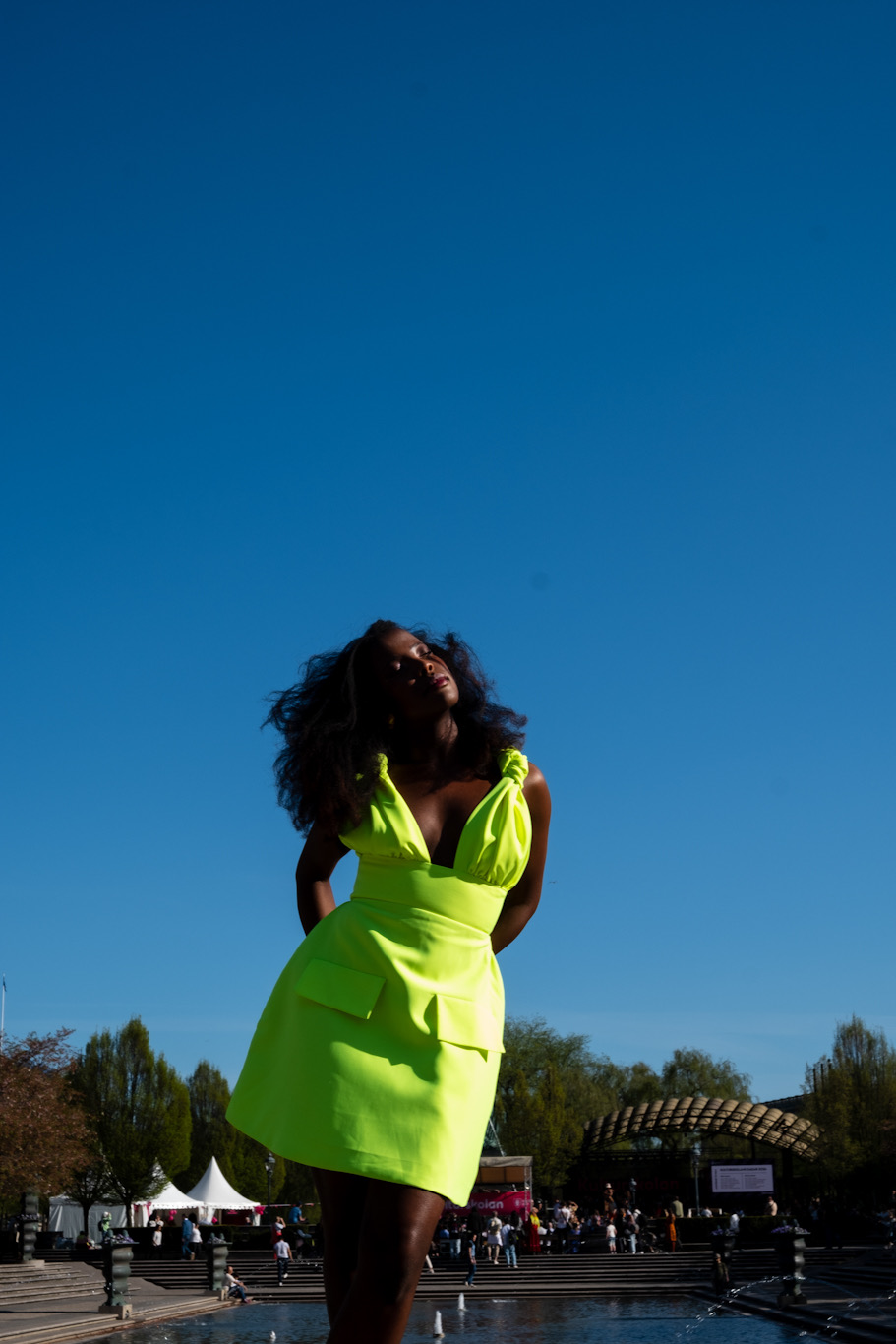
Each brand at AAF 2024 brought a unique narrative that speaks to Africa’s evolving design landscape. AJABENG’s soft tones and structured silhouettes embody a post-colonial optimism while grounding it in sustainable practices. BIIO’s edgy, deconstructed sportswear redefines conventional street style, and Bello | Edu’s globally adaptable silhouettes exemplify versatility. Circularity came to life through Chiip O Neal’s gender-neutral pieces crafted from deadstock and Oríré’s Lagos-made small-batch pieces, celebrating both creativity and environmental awareness. Bloom By Edzi’s bold femininity contrasted beautifully with Nya Lagos’ intricate beadwork, celebrating Nigerian elegance with intricate detail. Brands like Seraban and Alines Handmade honoured Ghanaian and Tanzanian heritage, using local wax prints, while Saki Cole and Amaré 87.65 injected joy into their pieces, making style playful and accessible.
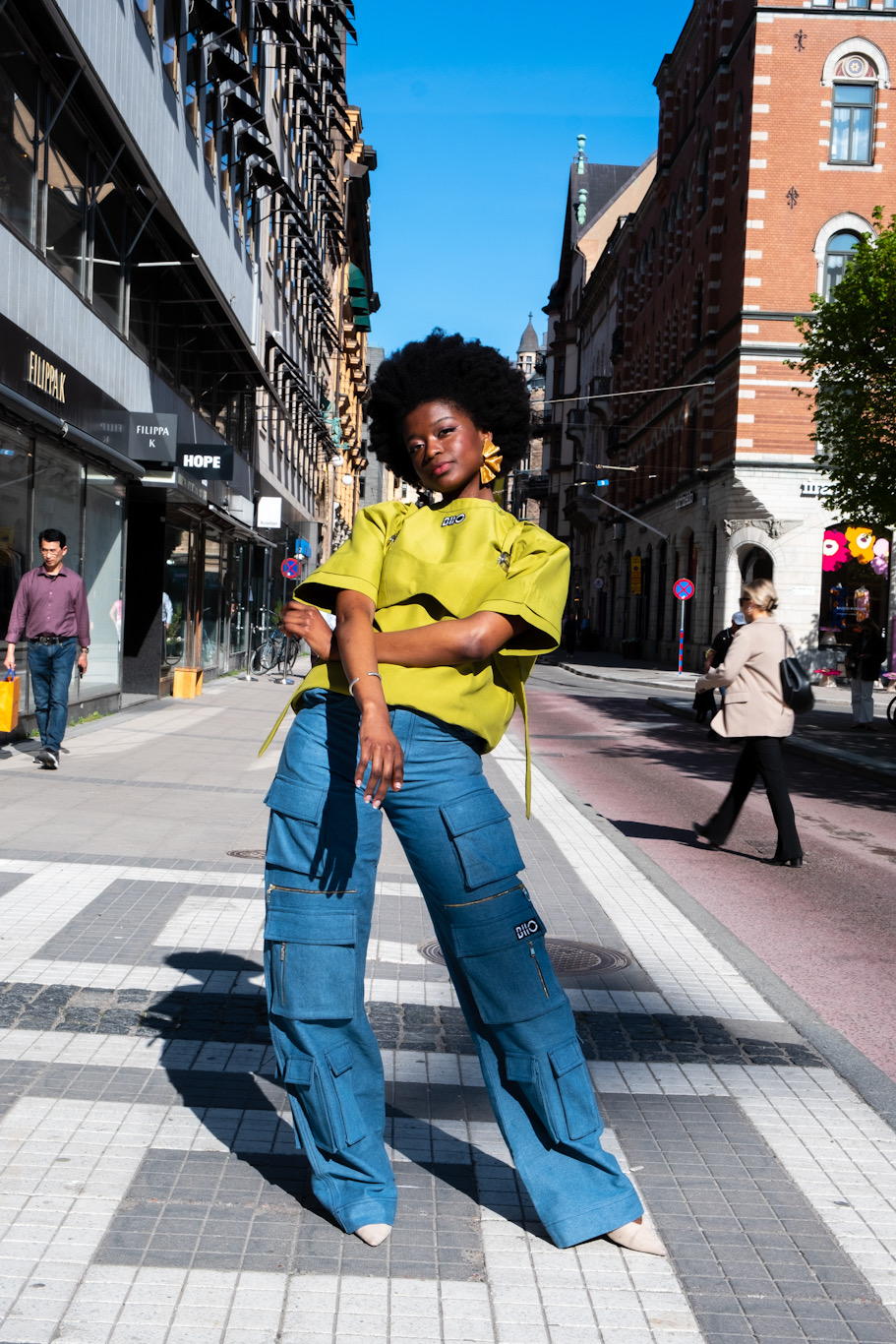
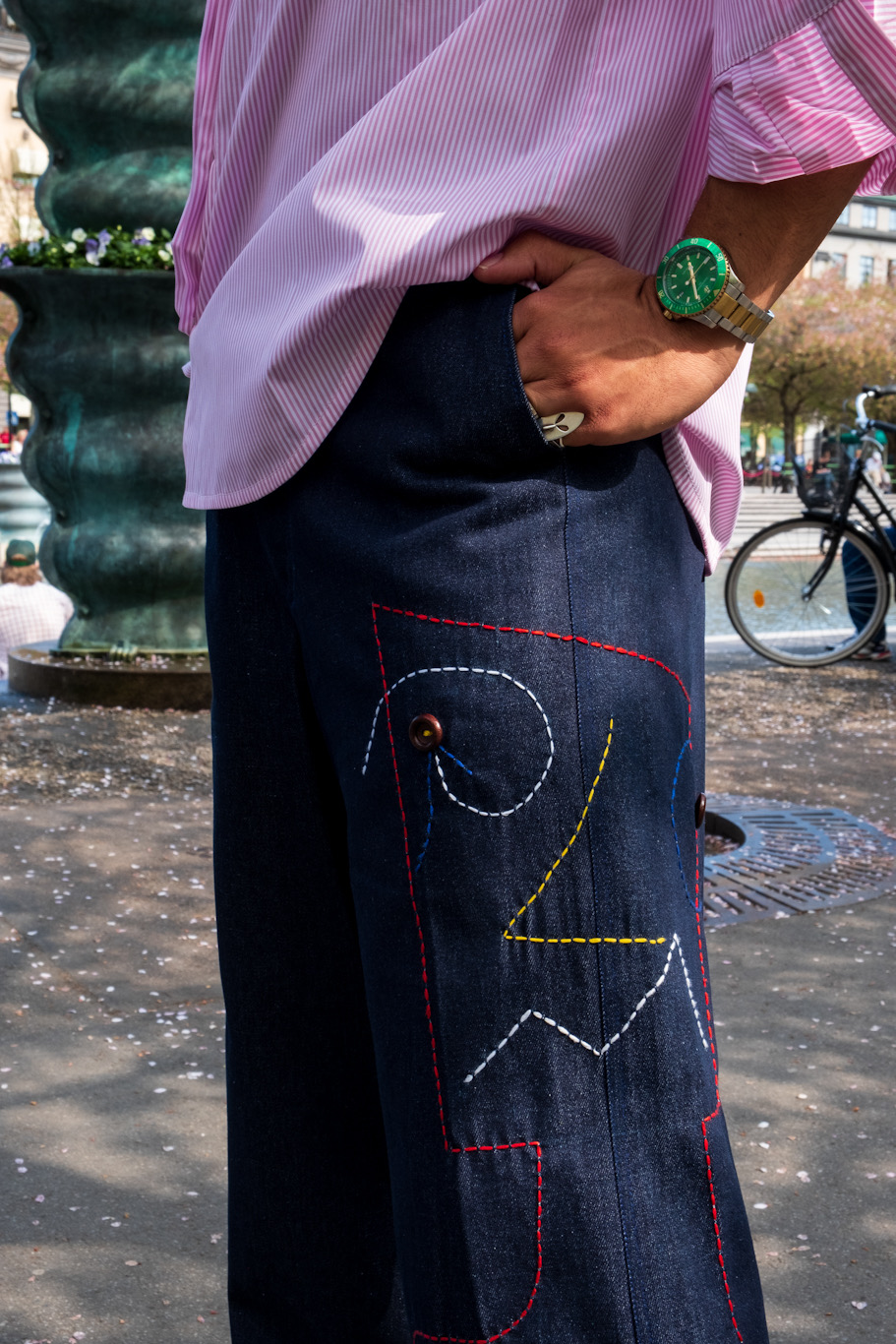
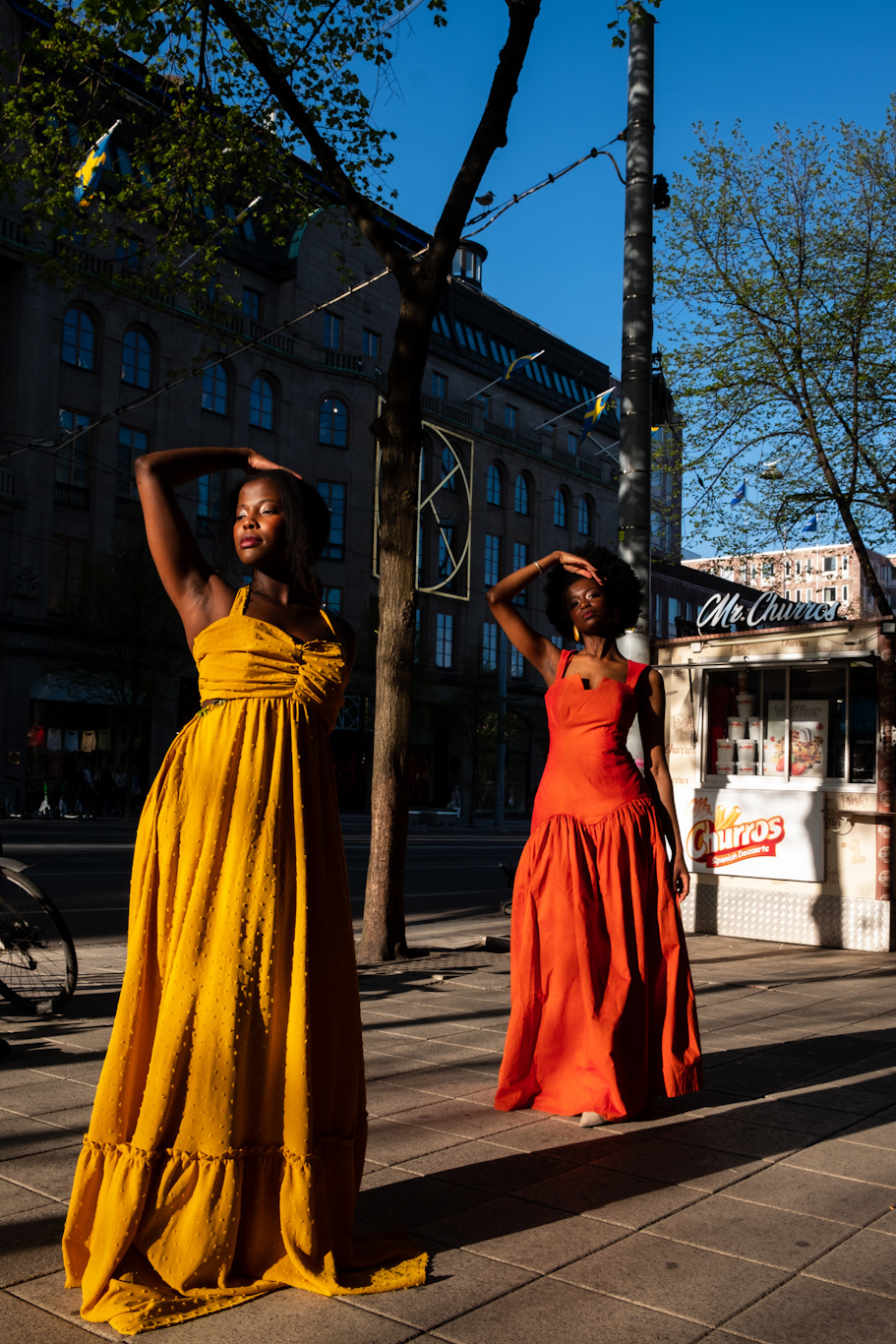

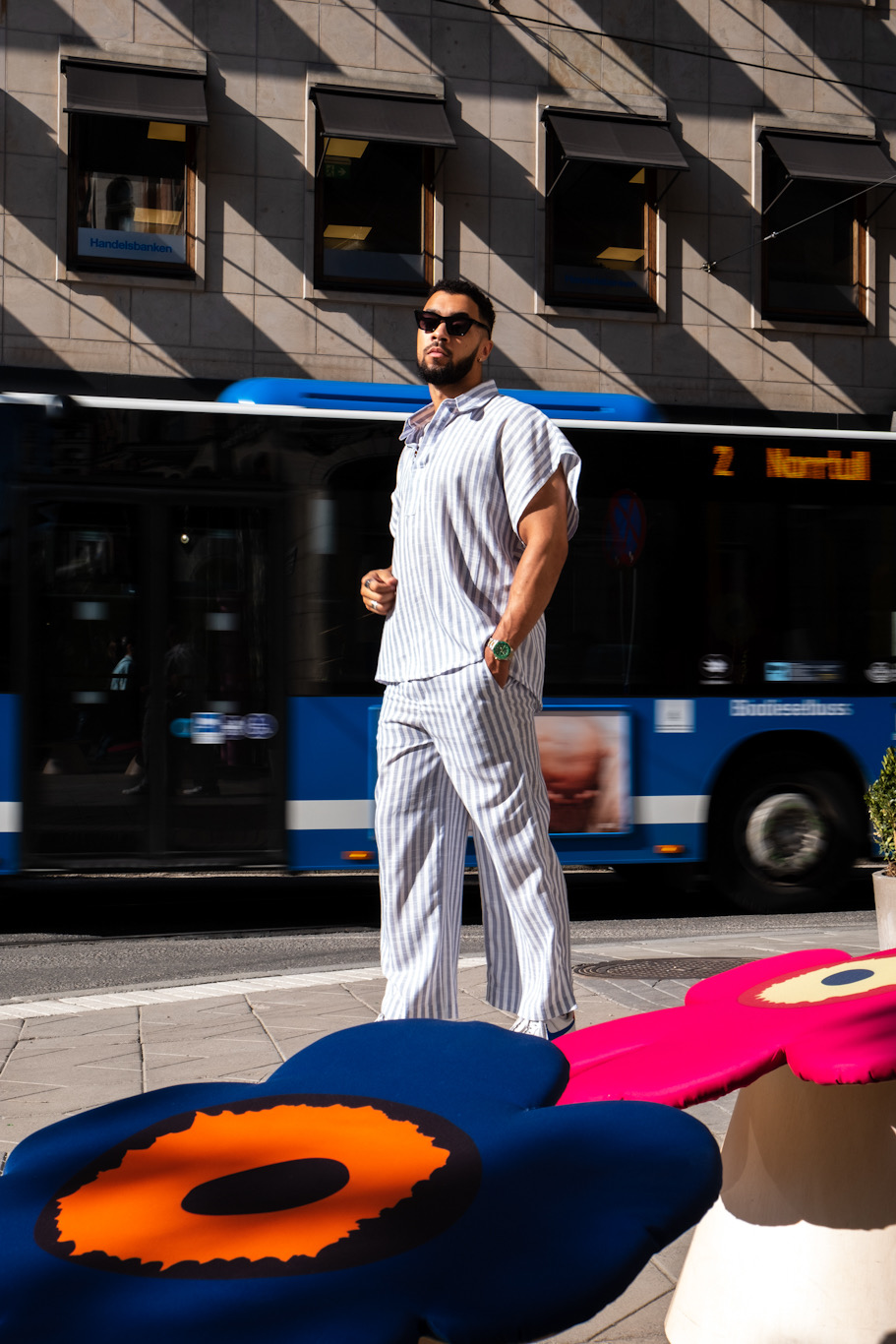
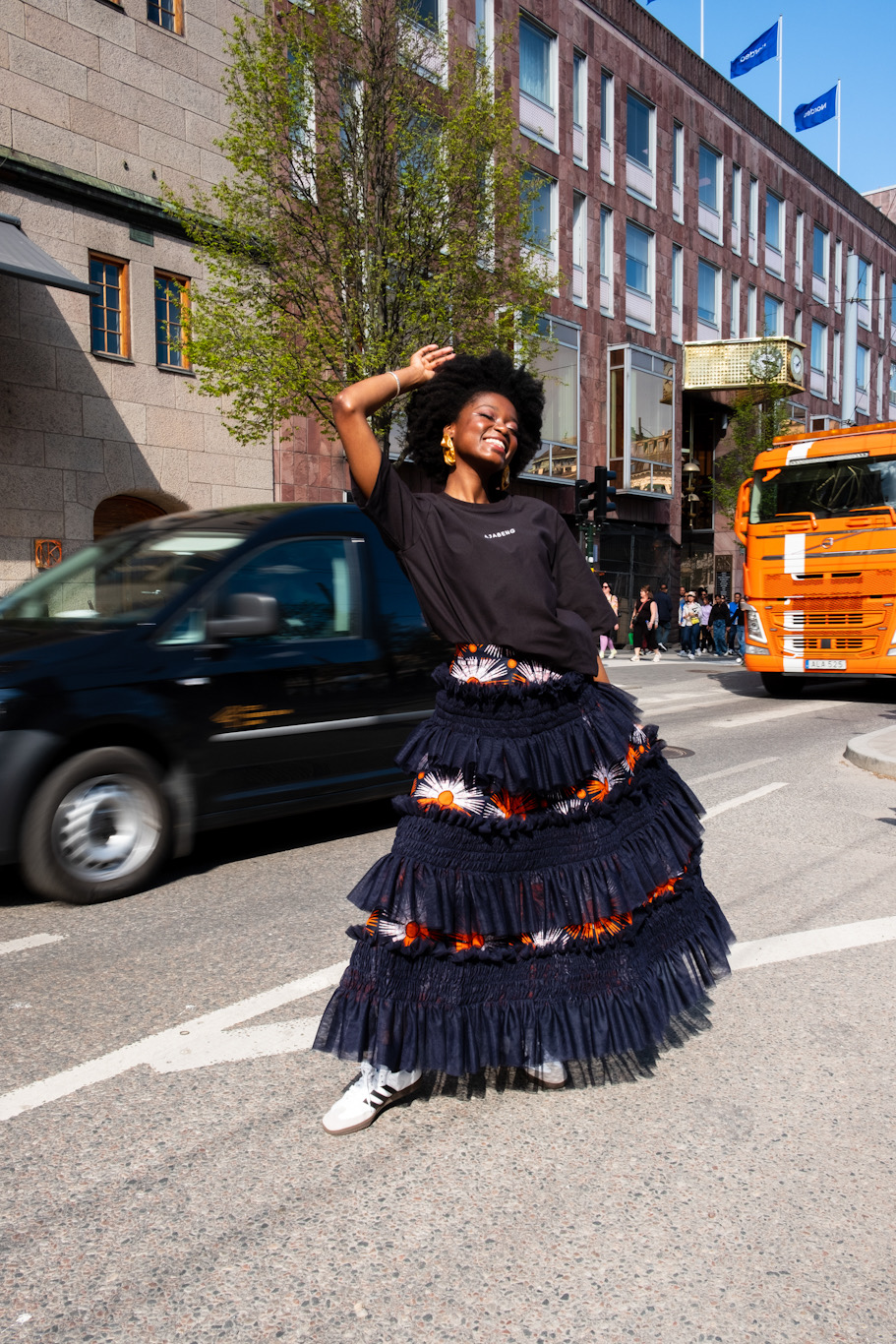
Even months after AAF’s close, African fashion is more present than ever in Scandinavia. During Copenhagen Fashion Week SS25, influencers were spotted in iconic designers like Christie Brown and OMÔL. At Stockholm’s CinemAfrica launch last weekend, the team donned pieces from Kai Collective, Andrea Iyamah, Jermaine Bleu, and Talensi—featured at AAF 2023—marking a growing footprint. These aren’t costumes or statements of novelty. They’re an extension of identity, blending seamlessly into Scandinavian life while honoring African roots.
As Stockholm returns to its characteristic monochromes, the color and warmth of African fashion remain. It’s a movement, not just a moment, where African design is no longer a bold choice but a natural one, reshaping Nordic style with vibrant storytelling and craftsmanship.
Photographs by Aayan Ardo
